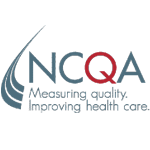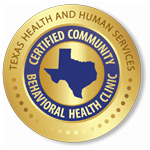Have you ever wondered how stress affects you physiologically? Would you like to learn simple ways to explain this phenomenon to your clients?
Join us as we examine the human physiological response to stress and the impacts of ongoing toxic stress levels. Counselors and helping professionals will learn how to educate their clients about their physiological responses to stress and implement strategies for managing symptoms.
By the end of this session, participants will be able to
- Discuss the human physiological response to stress
- Explain the short and long-term impacts of early and ongoing exposure to stress
- Apply knowledge and clinical skills to counseling interventions discussed in the session that address heightened stress response
REGISTER HERE
Cost: $25
Seats are limited. Please ensure you are registered no later than Monday, March 17th to secure your spot.
Please be sure to review our policy and procedure for any questions regarding cancellations, refunds and confidentiality.
Continuing Education Hours:
LPCs Earn 1.5 CE (Continuing Education) hours

___________________________________________________________________
Speaker: Erin Kaszynski, PhD, LPC
Dr. Kaszynski is the Associate Director of Clinical Education and Research at ACER. She holds a PhD in Counselor Education and Supervision with an emphasis in Multicultural Counseling and is a Licensed Professional Counselor in Texas. “Dr. K” has experience providing trauma-focused services to a diverse population across multiple counseling settings. Trauma-focused, multiculturally responsive care is a theme in her professional training, teaching as a professor, and research in the counseling field. For more information on Dr. Kaszynski’s professional experience, visit her on Linkedin.
Speaker: Kyle Blidy, PhD
Dr. Blidy is the Assistant Director of Education, Training, and Research at ACER. He holds a PhD in Neuroscience and five years of research experience focused on treatments for neuropsychiatric ailments. His work includes: 1) identifying neural profiles necessary for language recovery post-stroke; 2) identifying neural markers that predict therapy response among individuals with PTSD and/or SUDs; 3) examining how the brain reacts to social threats and whether intra-nasal oxytocin can reduce these reactions in individuals with cocaine use disorder; and 4) investigating how the brain creates rewarding memories among individuals with PTSD who struggle to feel joy. Dr. Blidy has showcased his work via publication and at national and international conferences. His goal is to identify moderators of treatment effectiveness across trauma-related conditions.
____________________________________________________________________
Agenda:
12:00 pm – 1:30 pm Stress Response and the Brain














